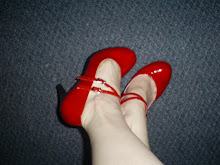I will be the first to admit that I have made such comments as, "If I wanted a 4.0 I would have been a psychology major." I have been disgruntled about how those "other" majors have it easier because they don't have classes on Friday or 3 hour labs to attend. I have, at times, said snobby things about social scientists. And, I'm sorry. I should know better. I come from a non-traditional academic background and in my 200+ undergraduate credits, have gained a great appreciation for a wide range of academic disciplines. I have learned an immense amount from not just my science professors, but psychology professors and writing professors alike. I should REALLY know better because I have been adopted into social science/humanities professor circles and know from first-hand experience that these professors are just as intelligent as my chemistry professors. So, I do not take it personally when chemistry students stop me in the hall and say things like, "How is the biology department? Aren't you sick of just counting squirrels all day?" or "I heard you became a psych major. Oh, you became a biology major, same thing." There is a certain level of friendly academic jousting among disciplines. But, there is also a serious misconception about the "hard sciences" and the "soft sciences" and it is unfortunate. Many, though certainly not all, professors and students in the physical sciences truly believe that they are doing "real" science and that somehow they are superior as a result. I have also been in psychology classes (not with R.W-S!) where the professor has completely skipped over the biological sections saying, "Well we'll leave that to the biologists." (hmmm, last I checked you can't have a brain without biology and you can't have psychology without a brain) Yes, there are distinct differences between the methodologies of these branches of science but there has to be. In some ways, I think social science is more difficult than physical science. Trying to understand the complexities of human cognitive processes or the intricacies of an entire culture is quite the task. It is easy to do lab experiments in which you can control the number of variables. In areas of social science, there are numerous variables that can be impossible to control for. At its root, science is about trying to understand the world around us, from the way molecules interact to the way humans interact. There are those that understand molecules better than people and those that understand people better than molecules. This is a good thing! Let's all have a bit more respect for each other and remember that whether we realize it or not, our academic disciplines do overlap in the real world and we have valuable information to share amongst ourselves.
Saturday, March 7, 2009
Subscribe to:
Post Comments (Atom)





2 comments:
I do hope you share this with R-W-S!
Great post! Though I must say that when such bickering went on when I was in college, I proudly bragged about being an English major reading Pride and Prejudice on a lazy Sunday afternoon while my soon to be ex-pre-med major roommates looked up from their textbooks sighing....;-)
One more good argument for liberal education! Why don't American universities understand how important it is to provide real exposure to a variety of disciplines, in order to foster respect across campus?
I'm ranting. But I hear ya, Sister.
By the way, the closer you look at any science the less "hard" it looks. Good physical scientists don't stop looking for confounding variables.
Post a Comment